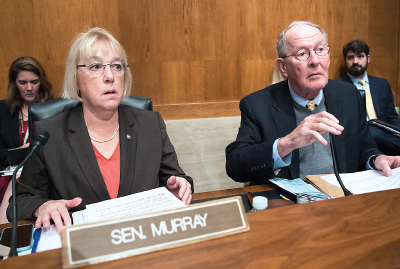APA and five other medical specialty organizations registered strong opposition to actions taken last month by the Trump administration to undermine the Affordable Care Act (ACA).
In separate statements, APA and the five other groups expressed grave concerns about a decision to end subsidies supporting insurance coverage of low-income families and an executive order allowing the purchase of certain types of low-cost health insurance plans. These actions will destabilize health insurance markets and ultimately diminish access to care for millions of Americans, APA and the other groups said.
The five other organizations are the American Academy of Family Physicians, the American Academy of Pediatrics, the American College of Physicians, the American Congress of Obstetricians & Gynecologists, and the American Osteopathic Association. Together, they represent more than 560,000 physicians and medical students nationwide.
On October 17, just a few days after the White House actions, Sen. Lamar Alexander (R-Tenn.) and Sen. Patty Murray (D-Wash.) announced a compromise proposal that would extend subsidies to states to help pay for low-income individuals and families in return for greater flexibility in allowing states to offer low-cost catastrophic insurance plans. As s went to press, it was unclear whether Senate Republican leaders would embrace the proposal, leaving its long-term prospects unknown at the time, and President Donald Trump was giving mixed signals about his support.
Alexander is chair of the Senate Health, Education, Labor, and Pensions Committee, and Murray is the committee’s ranking member.
The decision to end the subsidies supporting coverage of low-income families—“cost sharing reduction (CSR)” payments in the language of the ACA—is especially egregious, APA and the five other groups said, raising costs for the most vulnerable individuals and families and for the federal government.
“Our organizations, which represent more than 560,000 physicians and medical students nationwide, are alarmed by the president’s decision to abruptly take away financial support that aids low-income families in purchasing health care coverage,” APA and the other groups said in a joint statement issued on October 13. “This decision is not consistent with the administration’s pledge to provide individuals and families with more options to secure affordable health care coverage. Elimination of CSR payments makes that goal harder, if not impossible, to achieve.
“Our organizations call on the United States Senate and House of Representatives to take immediate action to restore these payments. A failure to address this matter will result in dramatic, if not catastrophic, increases in premiums across the country—resulting in millions of people either losing their health care coverage due to either insurer departures from the market or their inability to afford coverage.”
APA and the other groups added, “We cannot and will not support efforts to deliberately undermine and destabilize our health care system. Such actions are inconsistent with the missions of our organizations and lack the basic elements of good governance and public policy.”
That statement followed one issued the previous day protesting the executive order instructing federal agencies to promulgate regulations allowing individuals and small employers to purchase low-cost health insurance plans that provide minimal coverage to organizations representing a group of individuals—commonly referred to as association health plans, or AHPs. It also proposes that individuals be able to purchase cheaper, bare-bones policies for an extended period of time that, under current law and regulation, can be used only as a bridge toward buying coverage that meets current law essential benefit requirements.
“We agree that the cost of health care coverage is prohibitive for too many families, and we too are concerned that out-of-pocket costs from rising copays and deductibles are separating individuals that have health insurance from being able to afford health care services,” the six groups stated. “However, the proposal put forth by the president, in our initial review, raises many concerns. This will also destabilize the marketplace by incentivizing younger, healthier people to purchase cheaper bare-bones policies, leaving sicker individuals in an increasingly expensive market.
“While these concepts may look appealing on the surface, the reality is these plans allow for discrimination against certain populations, provide no economic security for those holding such a policy, and would destabilize health insurance marketplaces nationwide. These plans would be exempt from consumer protections and insurance regulations provided under current law. By waiving such protections, insurers would be allowed to establish their coverage determinations and premiums based on health status, age, and gender. Furthermore, these plans would not be required to provide the core comprehensive benefits such as vaccines, life-saving medical screenings, prevention, and treatment of opioid and other substance use disorders necessary to provide the comprehensive care working families need. We are also greatly concerned that these plans would be allowed to implement annual and lifetime caps on benefits that are no longer included as essential benefits.
“Our organizations strongly reject a marketplace that allows insurers to discriminate against any individual based on health status, age, or gender. Allowing insurers to sell narrow, low-cost health plans likely will cause significant economic harm to women and older, sicker Americans who stand to face higher-cost and fewer insurance options.
“The goal of providing access to affordable health care coverage for all Americans has our strongest support. How we achieve this goal is worthy of ongoing discussion, which we are ready to have with the president as he continues to look into ways to provide meaningful reforms to the health care system.” ■
The statement on ending CSR payments can be accessed
here. The statement on President Trump’s executive order is available
here.

